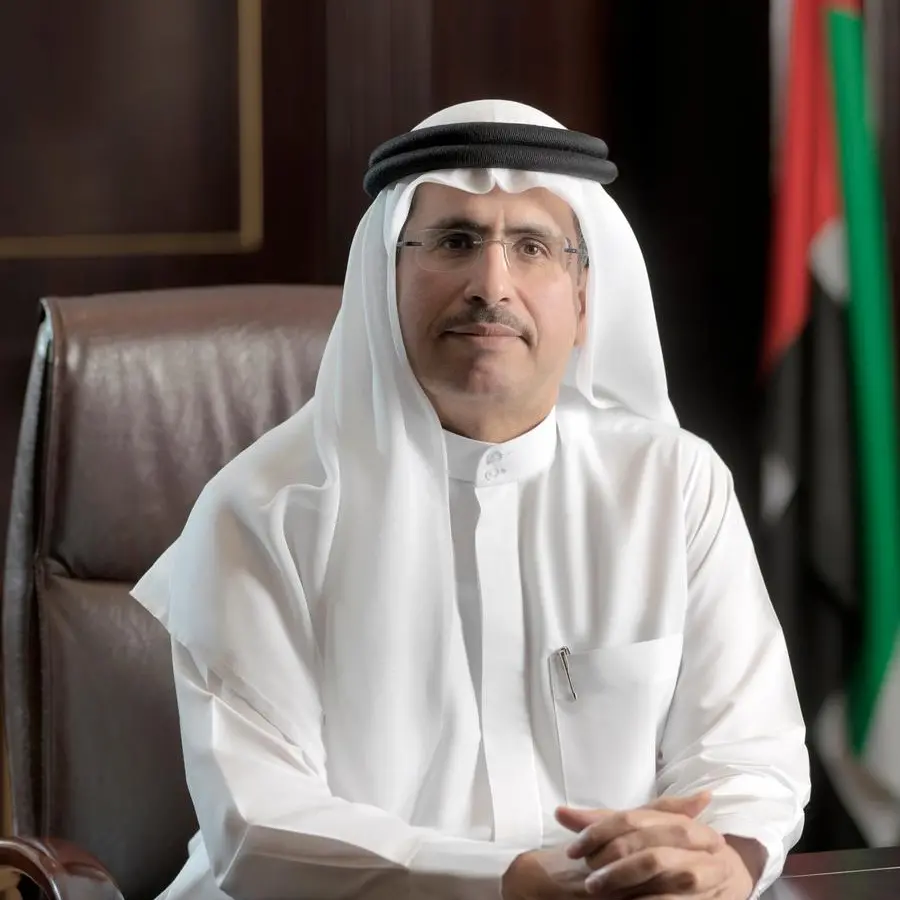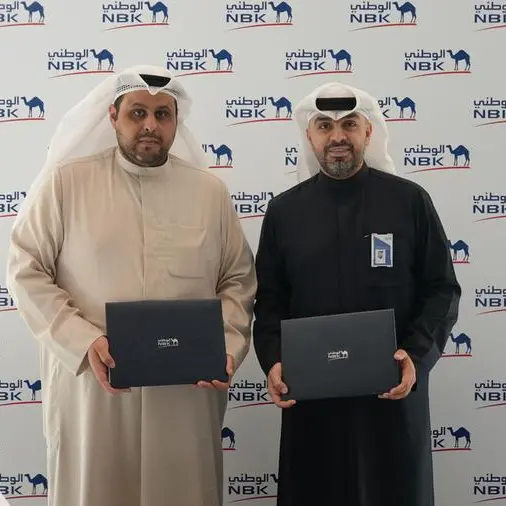UAE - Dubai: Middle East finance executives report great confidence in economic growth prospects for the year ahead, finds the 2018 Global Business & Spending Outlook, a survey released today by American Express Middle East. The vast majority of respondents – more than 90% – anticipate modest to substantial economic expansion in their country, closely aligned with the worldwide trend (85%).
This optimistic climate signals readiness for businesses to shift into growth mode. Three quarters of the region’s finance executives (74%) plan to increase spending and investment levels by 6% or more. The five countries with the Highest Investment Growth in the world are China (90%), followed by Japan (87%), then UAE (84%), KSA (83%) while Russia (80%) completed the top five. Nearly the same proportion (73%) plan for moderate spending and investment in search of
top-line growth while improving profitability.
The cross-industry findings in the joint American Express and Institutional Investor¹ study are based on a survey of 870 CFOs and other senior finance executives at companies with annual revenues of $500 million or more from more than 21 countries worldwide. And to add to its holistic view of a dynamic global services economy, for the first time in its 11-year history, the study includes respondents from the Middle East region representing 17% of the sample, compared to 18% from North America, 11% from Latin America, 32% from Europe, and 21% from Asia Pacific.
“Financial leaders are less anxious about economic surprises and have a well-directed view on how to drive business growth,” said Saud Swar, VP Commercial Business & Head of UAE, American Express Middle East. “This prevailing optimism is tempered with smart strategies as we’re seeing spend directed to specific growth initiatives such as meeting customers’ evolving needs and emerging technologies that support the need to innovate.”
In line with executives prevailing confidence, findings from the study suggest that economic, political, social and environmental uncertainty has become the new normal. Almost three quarters (73%) say that their spending and investment plans are not impacted by domestic or economic risk.
This, however, hasn’t stopped finance executives from keeping a watchful eye on business performance. 77% of respondents indicate a growing interest in expanding enterprise-level risk management systems or process improvements, and if pushed over by unanticipated economic headwinds, eight out of ten executives are likely respond by moving business to lower-risk geographic areas.
Better Meeting Customer Needs Has Become a Top Priority; Spending Plans Center on Technology
The vast majority of Middle East business leaders will be taking a back-to-basics approach when assessing their finance strategies for the year ahead, by pursuing goals tied directly to the core organic growth of their business. This has led 77% of Middle East respondents to place ‘better meeting customer needs’ as the top business priority. A solid majority of respondents are also planning strategic maneuvers such as penetrating new markets (66%), followed by business transformation and innovation (44%). Saudi Arabian executives stand out as the most eager among their peers to expand into new markets (83%).
As a result, companies plan to deepen their investment in developing new product and service offerings (53%) and improving production efficiency by streamlining processes and upgrading technologies (27%).
Looking deeper into category-level spending plans, mobile technology was the most expected to see an increase in the region and worldwide. Other high-priority spending categories in the Middle East include transportation and logistics services (31% anticipate increased spending) and Travel and Entertainment (30%).
Queried on their number-one technology spending priority, regional respondents say they are most likely to boost spending in integrating different information systems in an effort to enhance efficiency and data security. Nearly the same (25%) plan to allocate more resources to protection of data over the next two years.
Employment Levels Anticipated to Rise, with More Use of Part-Time Workers
An increase in Middle East companies’ workforce is anticipated in the year ahead. Nearly all regional respondents (73%) expect at least 6% increase in their companies’ number of employees. As companies look to do so, respondents have cited sales, marketing and administration support staff as the categories of employees that are most difficult to hire and retain (47% each).
In an effort to solve these challenges, Middle East companies plan to make career development opportunities more readily available and make day-to-day work life more fulfilling and comfortable. An increase in training, relocation and geographic rotation programs is expected this year (65%), as well as overall improvement in physical workplaces. Nearly the same proportion of respondents (63%) indicate plans to offer more flexible schedules and remote work opportunities, with the UAE showing the greatest potential to do so (72%).
And to meet their growing staffing needs, companies in the Middle East are likely to expand their use of temporary and part-time workers (59%) and to “on-shore” (43%), by moving positions from overseas to domestic locations, as opposed to outsourcing and offshoring (just 19%). The story is broadly similar worldwide where more than 7 in 10 respondents cite cost-flexibility as a principal reason for hiring contractors, freelancers and temps.
Next-generation Technologies Are on The Horizon; Robotics & Automation and AI Take Lead
Findings suggest that visionary finance executives in the Middle East have great interest in how technological innovations might impact the way they do their jobs and their company’s future. Overall, one fourth of respondents from the region expect next-generation technologies to bring major disruption to their industry (25%) in the next five years, while major disruptions from technology to their country’s well-being (15%) or company’s business activities and performance (11%) are cited less frequently.
When asked about the emerging technologies that “keep them up at night,” 66% of the region’s respondents affirm they feel most uneasy about robotics and automation (57%, worldwide). Artificial intelligence comes as the second source of concern for 41% of respondents in the region (compared with 54% worldwide). In response, Middle East executives confirm they are already making investments in robotics and automation (54%) and artificial intelligence (40%).
-Ends-
For the full Global Business & Spending Outlook, snapshots by region, charts and figures, visit: americanexpress.ae/insights
Methodology
The 2018 Global Business & Spending Outlook was conducted by Institutional Investor Thought Leadership Studio1 (IITLS) and is based on a survey of 870 senior finance executives from companies around the world with annual revenues of $500 million or more. All survey responses were gathered in late November and December 2017. IITLS estimates the margin of error for this population to be approximately +/-3% at a 95% level of confidence.
About American Express Middle East
AMEX (Middle East) B.S.C. (c) - American Express provides a service experience that makes a difference every day, through reliable, flexible, tailored and rewarding solutions for its Cardmembers, merchants and business partners.
American Express began operations in the MENA region in 1959 and set up its first office in Bahrain in 1977. In 1992, American Express Middle East B.S.C (c) was established in Bahrain as a joint venture company owned by American Express and Mawarid Investment Limited. Today, American Express Middle East employs more than 500 employees in the region, covering its consumer card, corporate payments and merchant businesses across the Middle East and North Africa region.
For more information visit our website at americanexpress.com.bh
Or connect with us on facebook.com/americanexpressME
and linkedin.com/company/americanexpressme
About American Express
American Express is a global services company, providing customers with access to products, insights and experiences that enrich lives and build business success. Learn more at americanexpress.com and connect with us on facebook.com/americanexpress, instagram.com/americanexpress, linkedin.com/company/american-express, twitter.com/americanexpress, and youtube.com/americanexpress.
Key links to products, services and corporate responsibility information: charge and credit cards, business credit cards, travel services, gift cards, prepaid cards, merchant services, Accertify, InAuth, corporate card, business travel, and corporate responsibility.
About Institutional Investor
For fifty-one years, Institutional Investor has consistently distinguished itself as the world’s foremost financial publication and convener of global institutional investors. By leveraging Institutional Investor’s publications, exclusive memberships, forums, industry benchmarks, award-winning content, and workflow solutions such as capital placement, Institutional Investor is the essential hub for the world’s financial decision-makers. www.institutionalinvestor.com
For more information on II’s custom research capabilities, contact Sam Knox, managing director of custom research, at sam.knox@institutionalinvestor.com.
1 From 2008 to 2016, CFO Research, a unit of CFO Publishing LLC, conducted this annual study in collaboration with American Express. All survey data prior to 2017 cited in this report was gathered and verified by CFO Research.
© Press Release 2018Disclaimer: The contents of this press release was provided from an external third party provider. This website is not responsible for, and does not control, such external content. This content is provided on an “as is” and “as available” basis and has not been edited in any way. Neither this website nor our affiliates guarantee the accuracy of or endorse the views or opinions expressed in this press release.
The press release is provided for informational purposes only. The content does not provide tax, legal or investment advice or opinion regarding the suitability, value or profitability of any particular security, portfolio or investment strategy. Neither this website nor our affiliates shall be liable for any errors or inaccuracies in the content, or for any actions taken by you in reliance thereon. You expressly agree that your use of the information within this article is at your sole risk.
To the fullest extent permitted by applicable law, this website, its parent company, its subsidiaries, its affiliates and the respective shareholders, directors, officers, employees, agents, advertisers, content providers and licensors will not be liable (jointly or severally) to you for any direct, indirect, consequential, special, incidental, punitive or exemplary damages, including without limitation, lost profits, lost savings and lost revenues, whether in negligence, tort, contract or any other theory of liability, even if the parties have been advised of the possibility or could have foreseen any such damages.



















